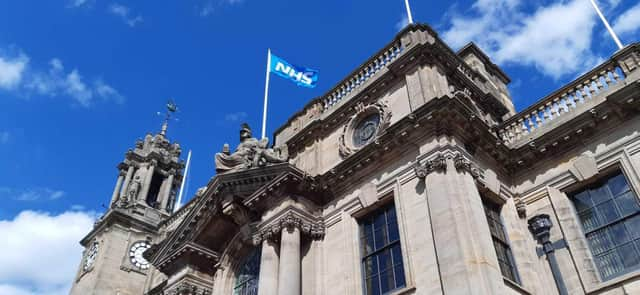South Tyneside statues cleared of racist connections after review of monuments following Black Lives Matter protests


A full assessment was carried out in the borough in the wake of protests linked to the Black Lives Matter movement across the UK.
But following its findings, bosses have decided not to take the issue any further.
Advertisement
Hide AdAdvertisement
Hide AdA statement from South Tyneside Council said: “We have carried out a review of council-owned statues and key landmarks and we have not identified any to be inappropriate or particularly controversial.
“As a result of the review, we are not planning to take any further action at this time.”
The decision to examine the borough’s public monuments followed a call for all local authorities to do the same after protestors toppled a statue of 17th Century slave trader Edward Colston in Bristol and threw it into the city’s harbour in June 2019.
Statues and monuments across the globe have been vandalised, destroyed or removed in the wake of the protests – with counter demonstrators turning out in some cases to protect sites they felt were at risk.
Advertisement
Hide AdAdvertisement
Hide AdPoliticians have also had mixed views, with some backing statues’ removal, others raising concerns such moves would lead to a “rewriting of history”.
At the height of the protests, South Tyneside chiefs said they were ‘not aware’ of any links to slavery, but promised to review any statues on public land.
Similar assessments have been carried out by other local authorities in the North East.
Sunderland City Council reached a similar conclusion, despite controversy over a statue to 19th Century army general Henry Havelock in the city’s Mowbray Park.
Advertisement
Hide AdAdvertisement
Hide AdThe memorial was added to the Topple the Racists website, citing concerns the soldier – who is also remembered in a statue in London’s Trafalgar Square – had ‘brutally suppressed the Indian rebellion of 1857’.
Durham County Council and Newcastle City Council also ordered reviews, which in the case of Newcastle also set out to consider the history and background of some street names.